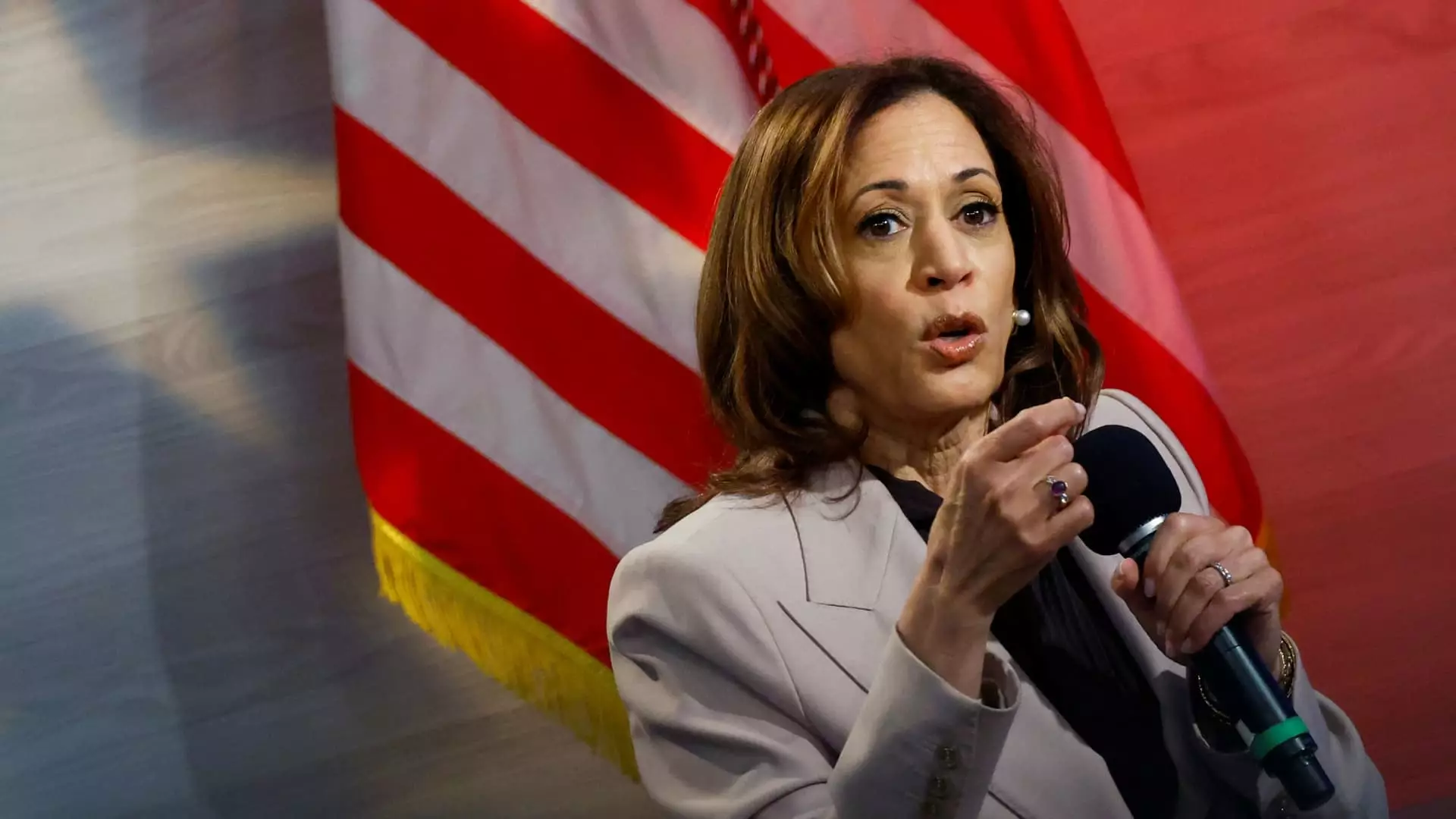In the contemporary political landscape, every vote matters, particularly within key demographics that shape election outcomes. One such group is young Black men, a demographic that has historically been pivotal for the Democratic Party. However, recent polls indicate a concerning trend: a noticeable fraction of this group appears to be drifting towards Republican support, particularly towards former President Donald Trump. Recognizing the potential repercussions of this shift, Vice President Kamala Harris has embarked on a concerted effort to not only maintain but actively earn their vote by focusing on economic issues that resonate deeply with their realities.
During a recent forum with the National Association of Black Journalists, Harris delineated her economic proposals aimed specifically at addressing the needs and aspirations of young Black men. Harris emphasized that her approach is not one based on assumed loyalty but rather one rooted in genuine engagement and understanding of their circumstances. This acknowledgment is crucial as it reflects an awareness that political allegiance is earned through consistent and substantive policies rather than assumed based on racial identity.
One of the cornerstones of her strategy is the emphasis on creating economic opportunities. She pointed to initiatives aimed at increasing funding for community banks, recognizing that many aspiring entrepreneurs within Black communities face significant barriers to accessing necessary startup capital. Harris articulated the unfulfilled potential within these communities, highlighting the determination and talent of individuals who are eager to launch businesses but are hindered by systemic financial inequities.
Proposals Designed for Impact
As part of her economic strategy, Harris proposed a series of measures intended to alleviate some of the historical disparities affecting Black communities. These include a $50,000 tax deduction for small businesses and the removal of medical debt from credit scores. Such proposals are designed not only to provide immediate financial relief but also to foster an environment conducive to entrepreneurship and growth within these communities. Harris made a compelling case that improvements in economic conditions for Black men would resonate across the broader community, leading to collective benefits.
This focus on economic issues is particularly poignant given the current climate surrounding public perceptions of the economy — an area where many Democrats face vulnerability. The Biden administration’s tenure has been marked by economic challenges, including inflation and a fluctuating job market, which have undoubtedly impacted public sentiment. Harris’s proactive measures can be seen as an attempt to reframe the narrative, drawing attention to tangible solutions that could revitalize confidence among voters.
Polling data paint a stark picture of the challenges facing the Democratic Party as they gear up for the election. The grim statistic revealing that 25% of Black voters aged 18 to 49 support Trump underscores a growing alarm: that a significant segment of this crucial demographic may feel disenchanted with the Democratic message. This discontent stems not only from economic frustrations but also from a perceived failure to adequately address issues that matter most to Black communities.
The political landscape is indeed transforming, and this shift is spurred by various factors, including nostalgia for the pre-pandemic economy that Trump presided over. The Biden-Harris administration’s efforts to restore economic stability may not be resonating as strongly as intended, leading to an unpredictable environment in which aspirations for economic recovery become increasingly vital for securing voter loyalty.
Devastating Opposition and Rising Tensions
Adding to the complexity of Harris’s mission are the divisive tactics employed by Trump and his allies. During his appearance with NABJ journalists, Trump’s derogatory remarks about Harris were a stark reminder of the ongoing confrontation between the two parties. Such comments not only trivialize the efforts made by Black leaders but also exacerbate the climate of division and distrust among constituents. Harris’s response to this disrespect emphasizes her commitment to uplift rather than diminish, standing in stark contrast to the approach of her opponent.
Kamala Harris’s targeted economic proposals represent a strategic effort to reclaim the trust of young Black men, who are increasingly looking beyond traditional voting patterns. By centering economic empowerment in her campaign, she aims to address the unique needs of this demographic while simultaneously reinforcing the broader Democratic agenda. Harris’s challenge lies in overcoming historical barriers and changing perceptions of the Democratic Party, demonstrating that its commitment to economic equity is genuine and not merely performative. As the election nears, the efficacy of these strategies will be put to the test, underscoring the importance of sustained engagement and the need for political leaders to earn their constituents’ trust actively.

Leave a Reply